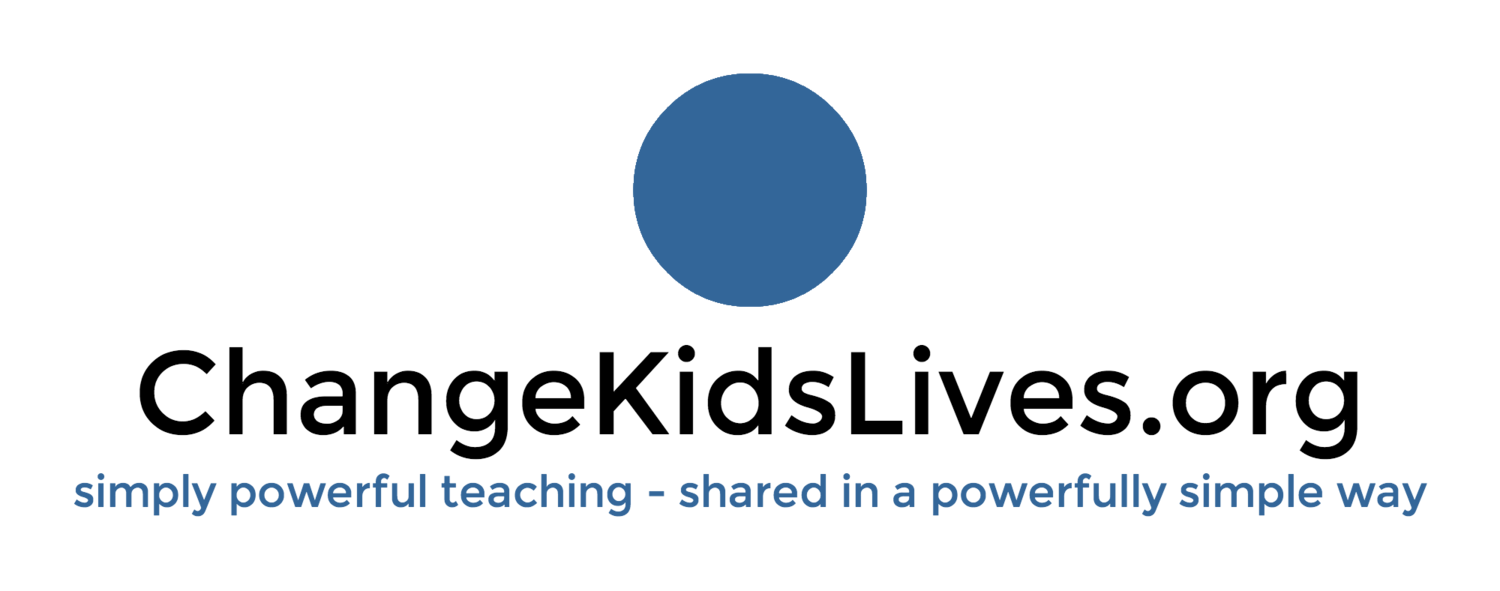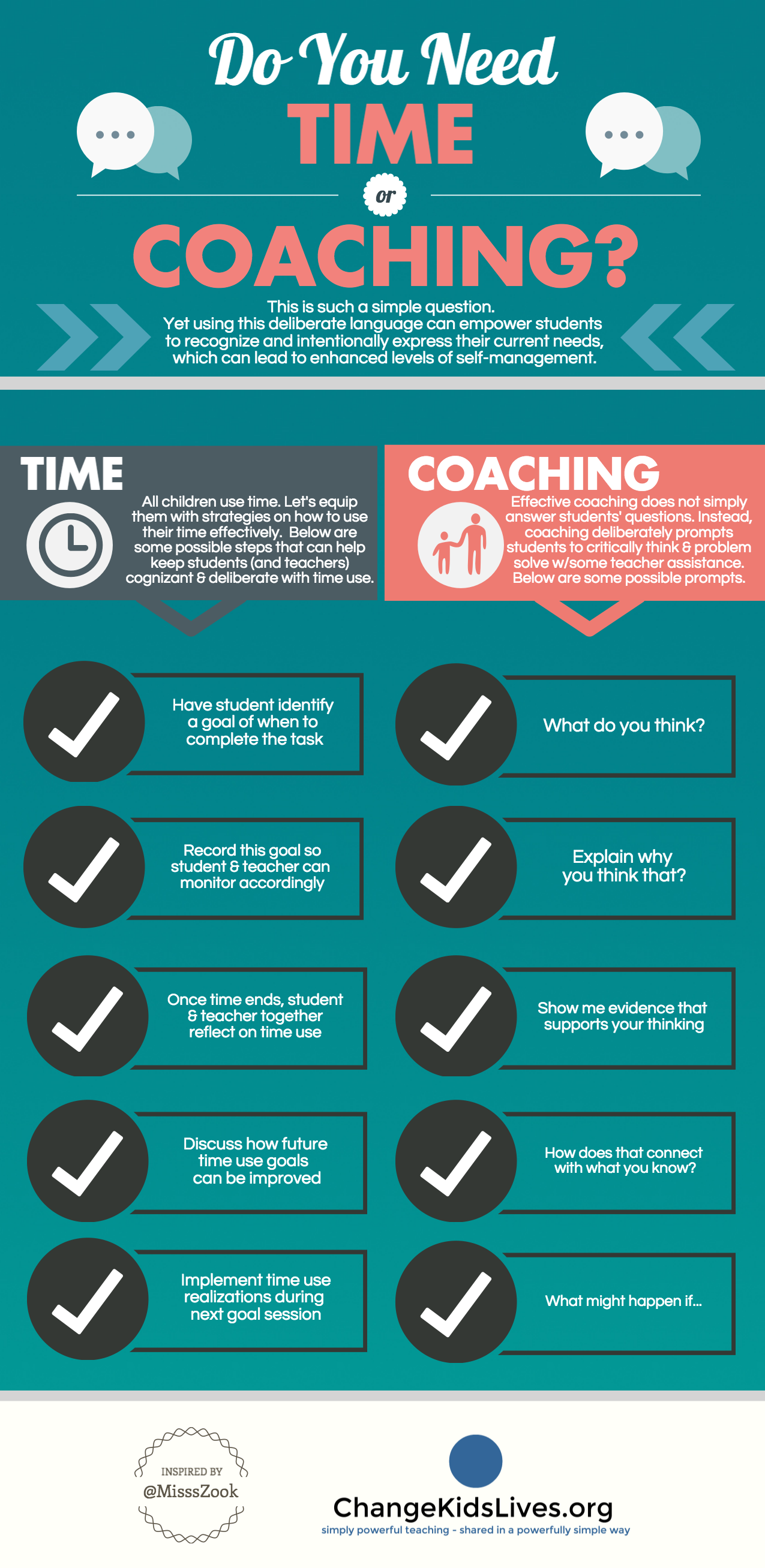Empowering Students By Asking, "Do You Need Time Or Coaching?"
Inspired By Kara Zook
simple truth:
Teaching students 'how' to learn can be more essential then teaching them 'what' to learn.
As educators, our goal is more than just having students succeed inside of our classrooms. I see the best teachers focussing their classroom instruction on how to equip and empower their students to succeed once they leave our classrooms. This is easier said then done. What does this instruction look like? What does it sound like?
One way we can empower students is to make them aware of and evaluate their own metacognition. Metacognition is the process of thinking about how one thinks. Initially this can sound confusing, though it's an incredibly powerful learning component that is often overlooked in schools.
Do we teach students how their unique ways of thinking, specific strengths, and individual challenges are different from their peers? Can you imagine if we all learned this about ourselves from a young age?
research tells us:
So where can we start? One area to help students understand their metacognition is to examine their self-management skills. Self-management is defined by CASEL, the leading organization for social-emotional student learning, as "the ability to regulate one's emotions, thoughts, and behaviors effectively..." and "setting and working toward achieving personal and academic goals."
To increase students' levels of self-management and their ability to regulate their own behavior, consider asking students a simple question. "Do you need time or coaching?" This powerful language can empower students' sense of self-management by recognizing and intentionally expressing their current needs. And regardless of their choice, learning is the outcome.
When students choose "time," this is not simply giving them a convenient amount of time to complete the task. Instead we need to collaborate with them to thoughtfully identify, monitor, and reflect on personal goals. In doing so, we can provide students authentic experiences of self-managing and monitoring their use of time. Some suggestions are identified below.
When students choose "coaching," this is not simply answering their questions. Instead we need to collaborate with students and provide deliberate prompts that encourage critical thinking and problem solving. Possible prompts are listed below.
THIS STRATEGY IS INSPIRED BY:
Kara Zook
Reading Interventionist
Middlebury, Indiana
Twitter @MisssZook
Interesting Fact: I'm writing a children's book
Educational Interests: Social Justice, Illiteracy, & Technology
"Ms. Zook changes kids' lives because she says please and thank you to all her students!"
-One of Kara Zook's students
try this:
If a student asks for time, together identify a goal of when to complete the task.
Next, record the goal so that the student/teacher can monitor progress.
Finally, once the time goal has been reached, the student and teacher should discuss the attainability of the original goal and how to adjust for future goals.
If a student asks for coaching, be deliberate in providing open-ended prompts instead of simply giving answers.
Initial prompts can include "What do you think, why do you think that?"
Additional higher level thinking prompts can include "Show me evidence that supports your thinking, how does that connect with what you know?"
If student answers are inaccurate, we can redirect by asking "What might happen if..."
review & share this:
For additional reading and referenced research, click here.


